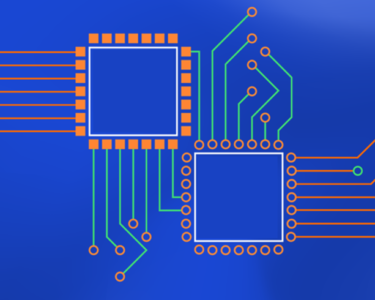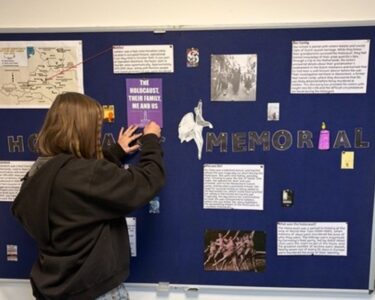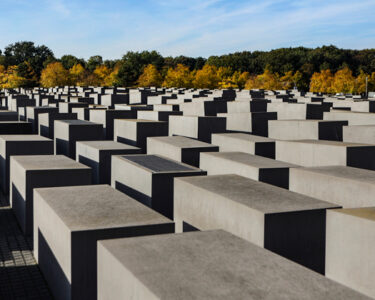On Tuesday (21 January 2025), the Centre celebrated the successful completion of its 2023-24 Beacon School cohort with an online event, congratulating the cohort of Lead teachers on the hard work and commitment to high-quality Holocaust education. Across a period of 18 months, the Lead teachers have developed an excellent, researched-informed scheme of learning, and worked to embed high standards of subject knowledge and pedagogical excellence in their schools.
During the event, there were reflections Centre Director, Professor Stuart Foster, Angela Cohen MBE, Chairman of the 45 Aid Society, and a video message from Robert Rinder MBE, congratulating our newest Beacon Schools on their achievements.
You can read Angela’s thoughtful tribute to our teachers here:
“After World War II, 732 child Holocaust survivors arrived in the UK, most of them have lost their entire families in the most evil way imaginable to man. The group became known as ‘the boys’, although there were 180 girls. Despite profound loss and tragedy, they showed extraordinary resilience, building new lives and finding hope once more, they studied, started careers, married, and built new families.
In 1965, a group of these survivors founded the 45 Aid Society with four main objectives; to support each other, remember those that were lost, give back to their adopted country and to teach the lessons of the Holocaust. Their legacy lives on through their children and grandchildren and I have the privilege of being the chairman of the 45 Aid society.
My dad, Moishe Malenicky, was one of the Boys. He was born in Piotrkow in Poland. It was a small town with 15,000 Jewish residence, which made up 27% of the total population. The Jewish community, both secular and orthodox thrived, there were three weekly Jewish newspapers as well as a wealth of religious, cultural and political organisations and institutions and there were numerous synagogues. His family were bakers, and my dad was known as the cookie boy as he used to cycle round the town selling biscuits.
My dad Moishe came from an orthodox family. His mother was Chana, who I am named after, and his dad was Elimelech, and he was the eldest of six children.
My father could never talk about his siblings or anything that happened to him during the Shoah. I get asked time and time again why didn’t you ask him about his family and what happened? I haven’t got an answer, but I was intuitive enough to understand that his silence was his way of coping- a way to shield him and his loved ones from the reliving of the horrors.
My dad died in 2001, and in 2004 my whole family visited Yad Vashem in Jerusalem. There is a huge computer bank, and I decided to enter my dad’s name. What a shock I had when I saw on screen my dad’s very recognisable handwriting and testimonies that he had done in 1975, and there for the first time I found the names of his siblings.
Today, here with friends at the UCL Centre for Holocaust Education, among its Beacon School teachers who recognise the importance of humanising the history, human dignity and the power of personal stories, I am going to tell you their names:
Nathan, Frumka, Surela, Dvorah and Miriam.
Miriam was the youngest, she was 7 years old when the war started. My family were all murdered in Treblinka. Discovering their names was such a profound and emotional moment for me, a way of giving voice to lives that were silenced and strengthening the bond between myself and my lost family. Names hold such power, they affirm that my family existed that they were loved and that they mattered.
Some of you may know I have come to learn more and more about the Centre’s work, you the teachers at its heart, and the remarkable Beacon School programme through its partnership with RWBA and The Holocaust, Their Family, Me and Us’ schools project. The latter has harnessed the expertise of the most skilled educators- some among your number today, and many more across the alumni community – to create something truly extraordinary, a program that not only educates but deeply engages students on an emotional and intellectual level. Holocaust education is so vital and to use creative outlets like art, poetry, and even sport to explore such profound things make the lessons resonate on a personal level, especially with our younger generations.
These approaches allows students to connect in ways that facts alone cannot. They encourage empathy, critical thinking and self-reflection helping students grasp the consequences of hatred and injustice in a way that feels relevant to their own lives. I have been given the incredibly humbling opportunity to engage directly with teachers and students. It’s so powerful to see how these young people connect so emotionally with the program and it’s a testament to how well it’s designed to foster understanding and empathy. The questions they ask show how much they are processing and grappling with these heavy but important topics, and their curiosity and compassion is humbling – and if you haven’t joined the project, consider doing so among your plans for building on your Beacon journey.
As the daughter of a Holocaust survivor, as we sadly approach an era of their passing, I wrestle with what’s next – how will their stories be told, who will tell them? Some among the second and third gen are stepping into classrooms and schools to support that learning, but seeing the work of UCL and knowing what expert teacher training and research looks like means I have a greater insight and appreciation for the time and commitment you have given this programme and this work. Schools are busy places, with so many priorities and this is complex and sensitive material to grapple with and combined with your own family lives and commitments – but you have stepped up and immersed yourself in this work, embracing the Beacon School opportunity.
I have seen the impact of UCLs teaching approach and materials in schools and what it looks like and feels like in the classroom, with images slowly revealed, powerful questions and conversations, evidence, case studies, and challenging misconceptions. I have heard from young people of what that learning means to them.
What you have given, over the last four terms working alongside Corey, Andy and UCLs expert mentors, of yourselves as people and teacher professionals, it’s incredible to me, and it’s an honour to be with you today to celebrate your Beacon School achievement and to wish you well in your next steps. Having invested so much in this programme I know this is the first chapter… and we will all be so proud and eager to turn the next page and to find out where you take this work in your classrooms, schools and communities.
And I would like to pay tribute too to the senior leaders who have supported you, your brave leadership, recognising how Holocaust education links to your values, education and mission. With your lead teacher, your roles remain critical. To move forward and build a culture in your school where Holocaust education is embedded, where you can work to recognise and challenge antisemitism and all forms of hate, relies on leaders like you to open doors and set the tone. Thankyou for your commitment too.
We live in difficult and challenging times, but as my Rob would say, you teachers are true ‘Beacons’, the light in the darkness – you give me hope.
Thank you”
“Angela’s comments reinforced the importance of the work between teachers and UCL. As Holocaust survivors pass away and can no longer tell their stories, we as teachers must preserve the memory of the Holocaust through our lessons ensuring this horrific event is never forgotten. To do this we can use personal stories, like Angela’s own family’s story, to humanise the history of the Holocaust and allow our students to see the people behind the statistics, that are often remembered above everything else. UCL’s work puts personal stories and survivors’ testimonies at the heart of their CPD programme and Angela’s comments made it clear why this is so important for families like her own, for us to share these with our students.”
Jade May, Teacher (St. Bartholomew’s School, Newbury)



